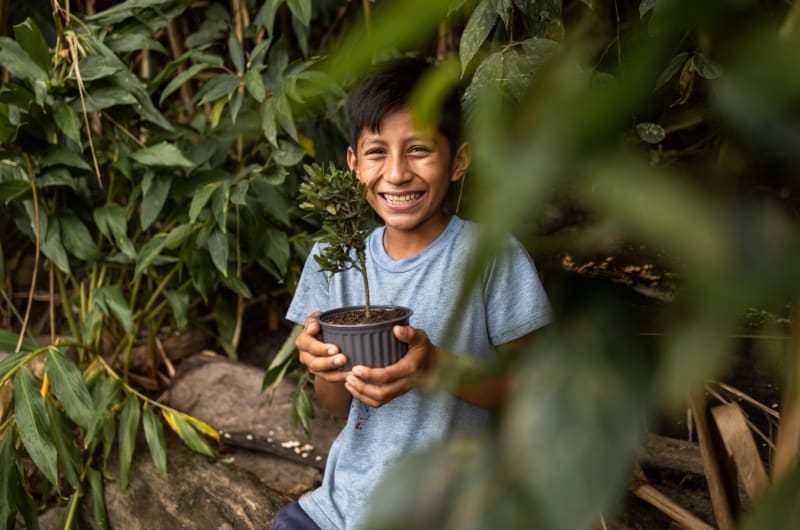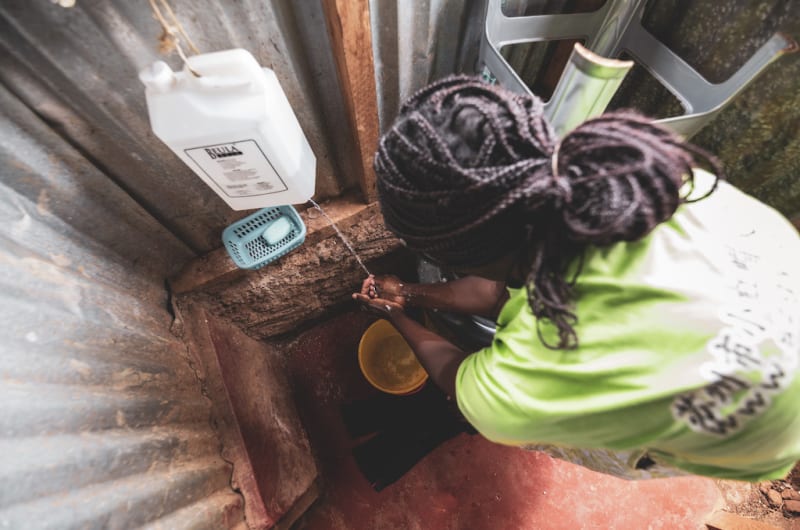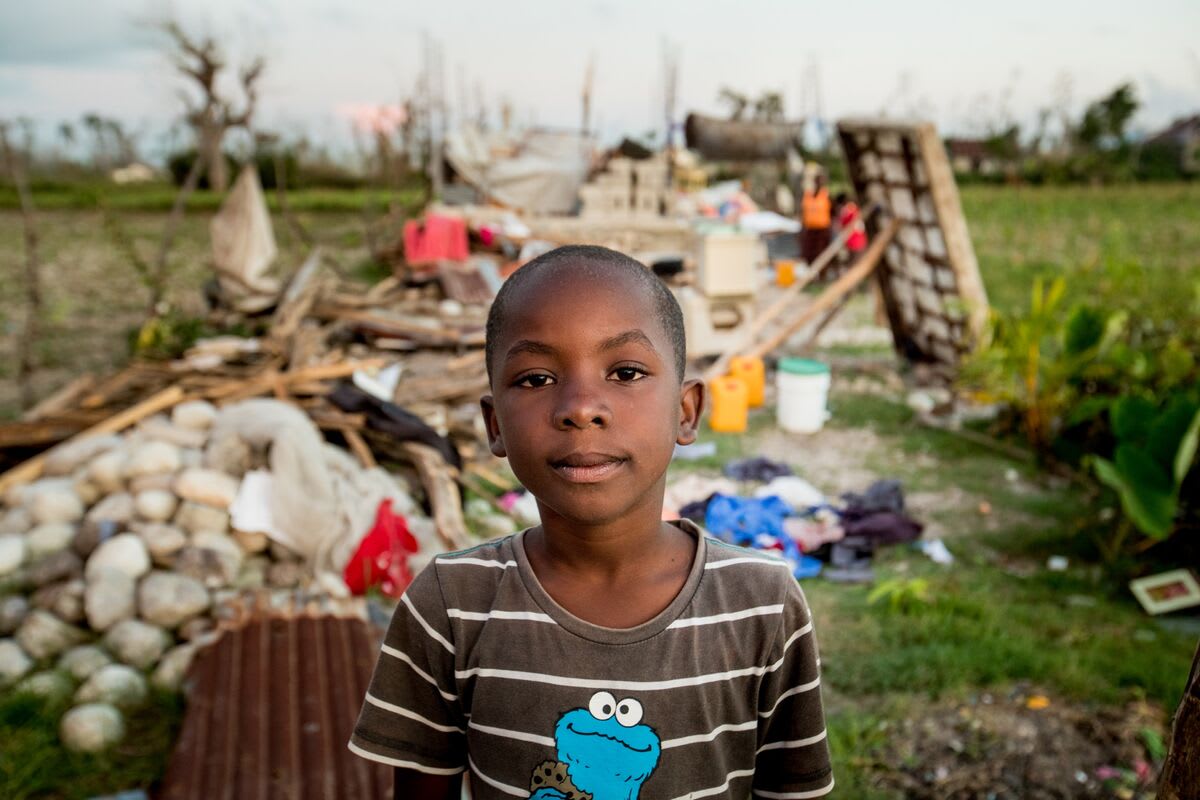
Vulnerability—it’s the common denominator between poverty and natural disasters, particularly for children. With natural disasters increasing, it is more important than ever that children have safe, secure and present help in navigating these realities.
“The link between poverty and vulnerability to disaster is undeniable. As a result, Compassion staff and church partners are often the first ones on the ground in the wake of an emergency—ready and prepared to respond to the needs of children and their families.”
Compassion International
Ensuring the protection of the most vulnerable in times of crisis comes down to being present. Compassion staff and church partners are a trusted presence established in the lives and communities of the children we serve. This means whenever crisis and disaster strike, Compassion’s local church partners are already on the ground ready to respond in their local communities. And not only are they present to meet the immediate needs in the aftermath of crisis, but they remain present through the long-term recovery. Given the multi-faceted impact of natural disasters—affecting the physical, social, emotional and spiritual aspects of a child’s life—this long-term care is essential to true, holistic recovery.
In the wake of an emergency, children are amongst the most vulnerable. But when Compassion is present in their lives and communities, they are not left vulnerable. They are known, loved and protected by Compassion staff and the local church partners who are present both in the immediate aftermath, as well as in the years to come.
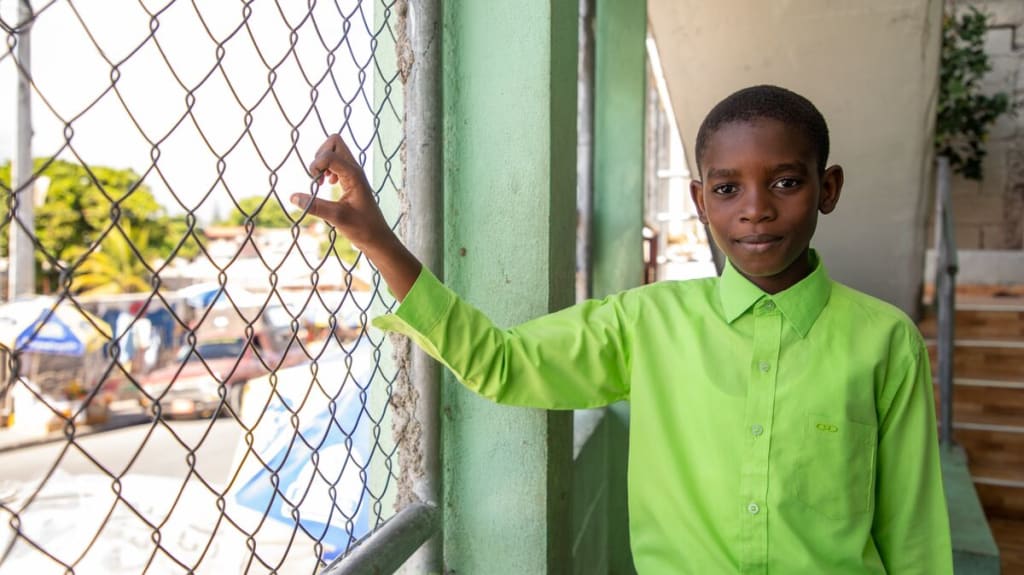
Immediate help in Haiti
In the aftermath of the earthquake in Haiti on August 14, 2021, Compassion’s first concern is the survival of the child. The greatest risks children and their families are facing are those that existed before the earthquake struck but are now intensified. Food insecurity, safety issues and medical concerns are the primary risks children face. Compassion ensures that essential resources are provided to children and their families to help mitigate these risks. These can be things such as the emergency food packages, or they can be items like sleeping mats, hygiene kits and more.
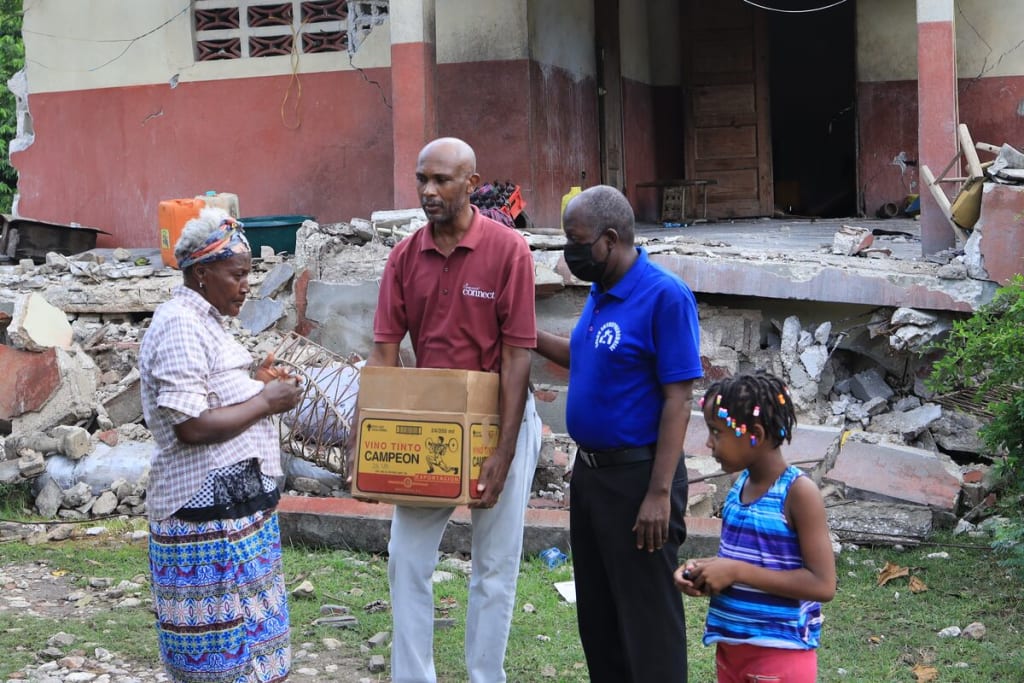
Compassion Haiti staff delivering an emergency food package in the aftermath of the 2021 earthquake.
Compassion provides these resources while setting up child-friendly spaces which allow for vulnerable and unaccompanied children to seek refuge and wait safely as missing caregivers are located. These safe spaces are provided by trusted adults with whom the children already have a relationship from the Compassion centre and local church. Where needed, local Compassion centres also ensure that help is provided for those who suffered injuries from the earthquake by providing both medical and psychological support for babies, children and their families.
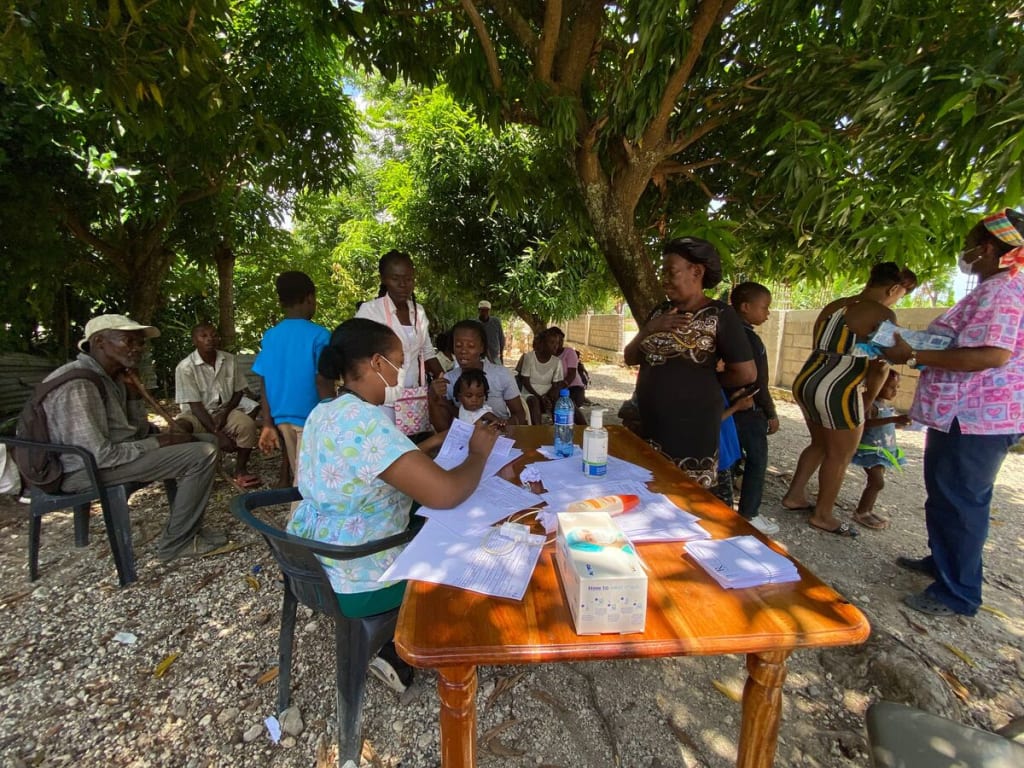
Medical care being provided at a Compassion centre in Haiti following the earthquake in 2021 .
Compassion Haiti’s Disaster Response Team continues to meet with local pastors, centre directors and community leaders to ensure that children have their most urgent needs met. Their commitment to ensuring every child is safe and cared for is the common thread through these meetings. These men and women are the faces that Compassion children know and those who are present with them now. Many of these local leaders are dedicated to caring for the most vulnerable amidst facing the crisis themselves and are working diligently to provide support and a sense of normalcy for the children they serve.
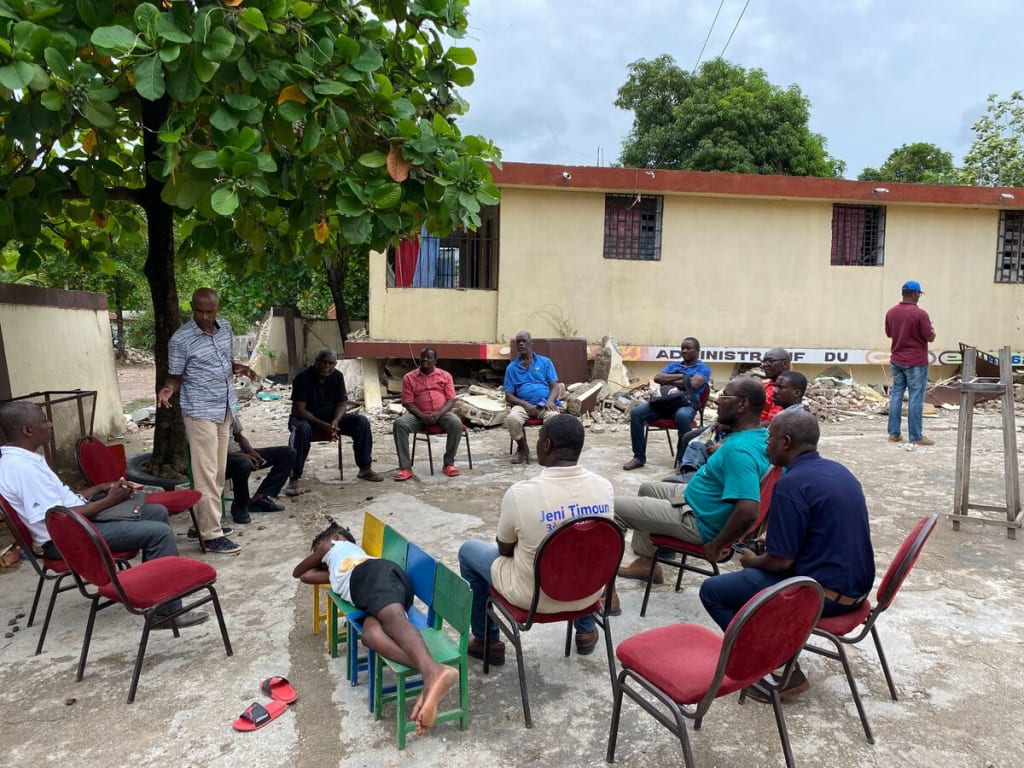
Compassion Haiti meets with local pastors, centre directors and leaders in the week following the 2021 earthquake to ensure children have their needs met.
Present through the years
This is not the first catastrophic disaster to impact the people of Haiti. On January 12, 2010, Haiti was struck by a 7.0 magnitude earthquake that devastated the country and on October 4, 2016, the country was rocked by Hurricane Matthew. But, as with the most recent disaster, Compassion was present to meet immediate and long-term needs in all the same ways.
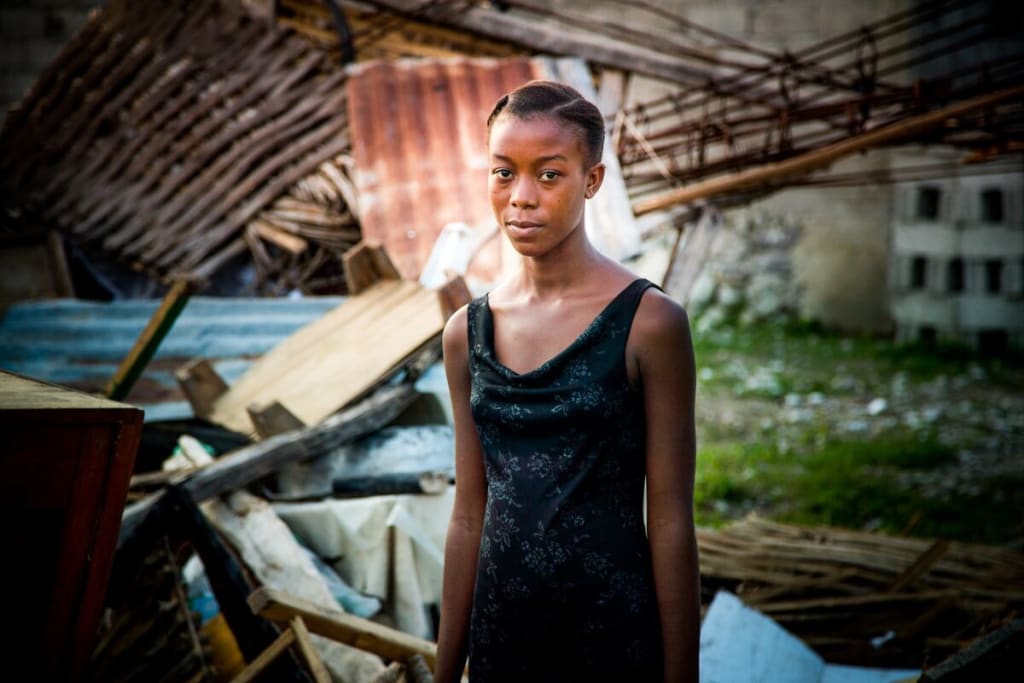
Angeline received food, water and hygiene supplies after Hurricane Matthew and her family was provided counselling following the crisis.
What the 2010 earthquake and Hurricane Matthew have shown us is how Compassion Haiti remained present through the long-term recovery for children and their families. The Compassion staff and local church partners were there through the grief and the trauma of that earthquake, sharing the burden of lost loved ones and the anxiety and fear it created. Through Compassion’s efforts following the 2010 earthquake, 9,000 Haitians received the psychological care they needed to heal and recover. All of this simply through the power of presence.
Not only that, but in the destruction that occurred after Hurricane Matthew in 2016, Compassion Haiti rebuilt Compassion centres to international seismic standards in order to provide safe spaces that were structurally sound should the country ever face another natural disaster. This investment proved to be worth its weight in gold. Following the most recent earthquake on August 14, 2021, which hit the same region as Hurricane Matthew did just five years ago, the buildings that Compassion rebuilt remain standing and are providing shelter and stability to the children and their families that attend these Compassion centres today.
Woldton, the centre director at one of these Compassion centres, expressed just how grateful he was for the long-term investment in his community. He hopes that as the focus shifts from meeting immediate needs to the long-term recovery and rebuilding, Compassion’s efforts will help prevent future loss of lives and be a symbol of hope and help for other communities in the way that his Compassion centre has.
“I believe that this tragedy can turn into an opportunity for the Haitian people to build better now,” he says.
Christ, church, child
Presence is powerful. And purposeful presence is what changes lives. Compassion is present in the lives of children and their families in the wake of natural disasters and crises with both immediate and long-term care. But there is more to Compassion’s presence then providing the resources needed, and what has happened in Haiti has been a profound example of this.
Compassion is committed to bringing the presence of Christ into the lives of children and their families, providing hope for today, tomorrow and eternity. Everything we do for children is meant to reflect God’s heart to them, and to ensure that His Presence is experienced amidst grief, trauma and crisis.
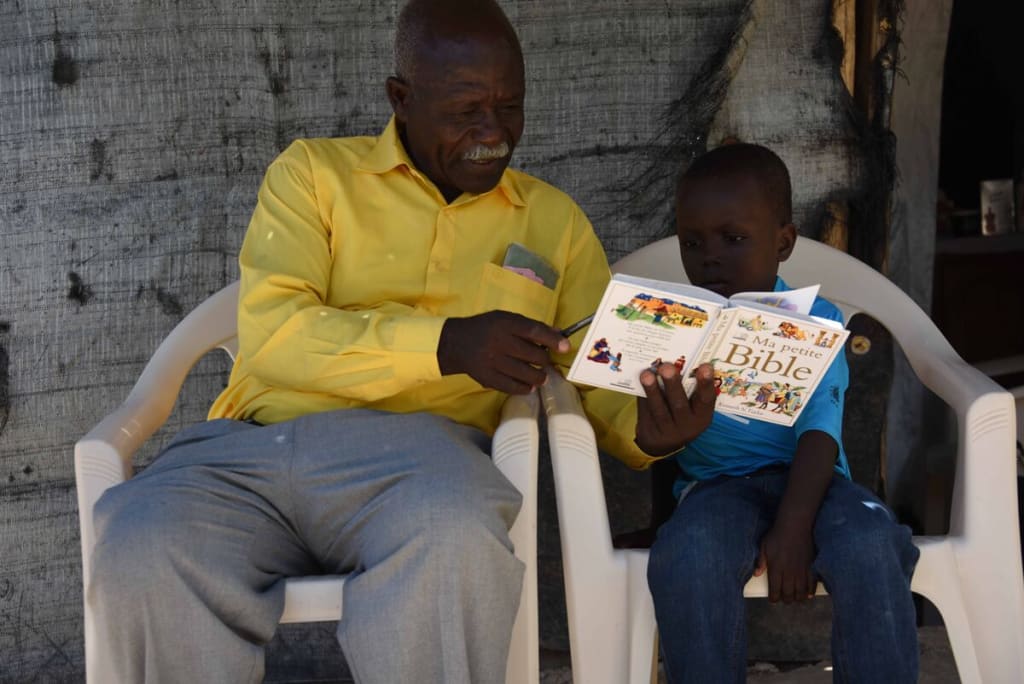
Pastor Dorelien, the pastor of one of Compassion’s local church partners in Haiti, reads the bible to Odlet, a sponsored child.
Compassion works through the presence of the local church. The local church is firmly planted in the communities where Compassion children and their families live. They are best equipped to know the needs, challenges and situations of every child they serve and have relationship with them. Just like the buildings that remained standing, the local church remains a constant presence of hope, love and stability no matter what befalls them.
And Compassion is fully present so that every child is known, loved and protected. The Compassion staff and local church partners ensure that each child is cared for holistically. Their physical needs are met, they have secure social environments, their emotional health is supported, and they find spiritual care in Compassion’s program. This can only be accomplished through purposeful presence.
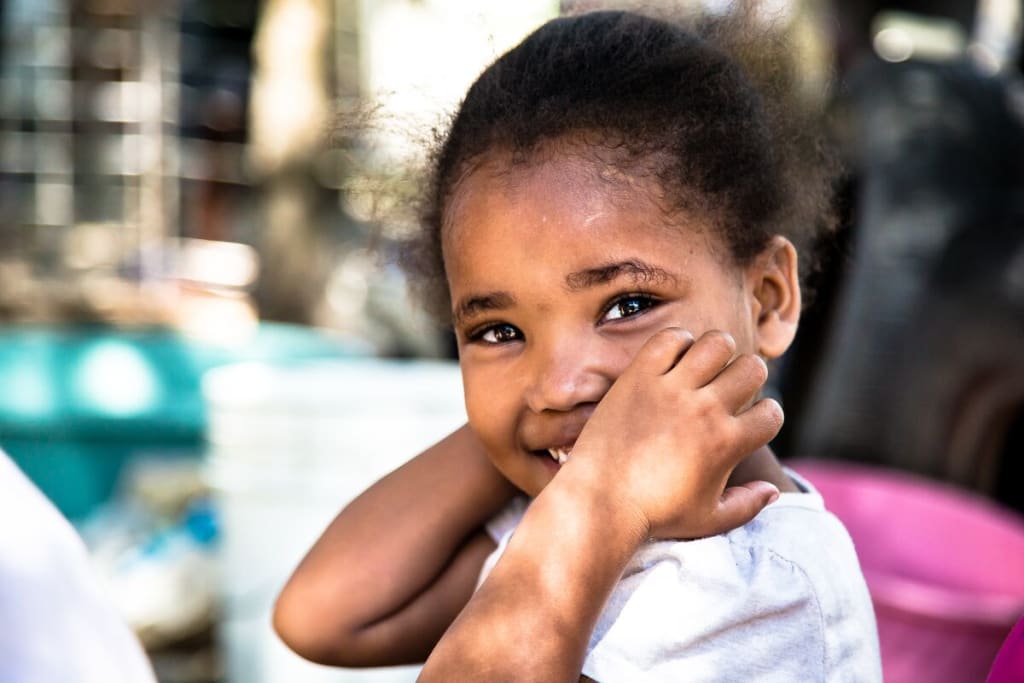
In the wake of an emergency, children are not left vulnerable. They are known, loved and protected by Compassion staff and the local church partners who are present both in the immediate aftermath, as well as in the years to come.


